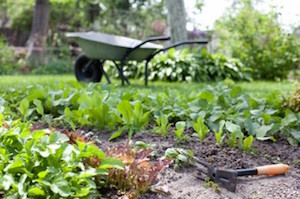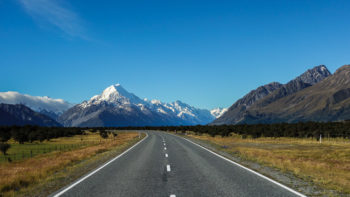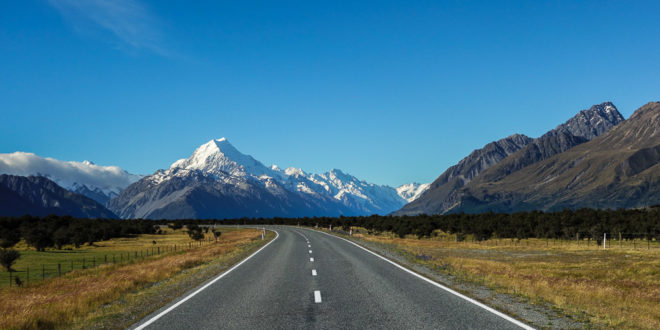The Oily Rag team are back again with tips to help you save on gardening, fuel and much more.
Oily Rag gardening
Plant propagation is the surest way to multiply your plants and saving your money. You can multiply the plants by various ways– Cutting, layering, division etc. If you’re not familiar with different plant propagation methods, this article on Planet Natural will surely help you.
 Take note of plants which work well together and plants which dislike being close together, you’ll get a better veggie garden yield and your plants will be happy chappies. Read our tips here on companion planting.
Take note of plants which work well together and plants which dislike being close together, you’ll get a better veggie garden yield and your plants will be happy chappies. Read our tips here on companion planting.
Dandelion from Whangarei writes, “Most gardeners we have found are generous with plant sharing because nature provides abundance. My husband helps prune people’s fruit trees and if they have a good variety he takes cutting material away. Often we see a plant we like which is in seed and ask the gardener for some seed. We saved 20 daffodil bulbs growing on our land and split them each year until our orchard is now full of them. There are some basic rules for when to take cutting material depending on the plant type. Sub-tropical plants, for example, should be split in late spring as the ground warms up. We find neighbours a good resource as they know what succeeds in our bioregion and which varieties work best.”
Electric cars

A word of warning for those who want to save money by owning an electric vehicle. The Inland Revenue Department has calculated the cost of running an electric vehicle is more than petrol cars, after taking into account the purchase price. The IRD website says, “This year we are able to set mileage rates for hybrid and electric cars. For the first time, we have been able to obtain reliable data in respect of the fixed and running cost for these types of vehicles. These mileage rates are Petrol – 73 cents per km, Hybrid – 73 cents per km, Electric – 81 cents per km. For both Hybrid and Electric vehicles, our data shows that although these types of vehicle have lower running costs, these are offset by higher fixed costs.” So maybe it’s best to hold off buying that electric vehicle just yet. No doubt they will be a lot cheaper in a few year’s time as production of electric vehicles increases and the price per unit falls. Given the simplicity of an electric engine, we believe there is potential for transport costs to be reduced significantly in the future.
Shopping around for petrol is worth it
On the subject of motoring costs, a frugal traveller recently reported that they save quite a lot of money by shopping around for the petrol stations with the lowest fuel price. “I have found the Gull self-service stations the cheapest by far. On a recent trip to the Bay of Plenty we saved 8 cents a litre, and by being sensible on the accelerator I was able to achieve 5.8 litres per 100km in our 2000cc SUV. That worked out at about 10 cents a kilometre.”
Check your tyre pressure and save even more!
 Did you know that tyre pressure affects fuel consumption because when under-inflated their rolling resistance increases? According to one tyre company, every 10% under the vehicle manufacturer’s recommended pressure costs about 2.5% in fuel consumption. So if a tyre is running at 27 PSI instead of 30 the extra fuel consumption will cost about 4-5 cents a litre based on today’s pump price. To find out what tyre pressures are recommended for your vehicle, go to energy wise.govt.nz/tools/tyre-pressure, or look for a sticker in the car door jamb – or check your owner’s manual. The recommended pressure for most cars is usually between 30 and 35 PSI.
Did you know that tyre pressure affects fuel consumption because when under-inflated their rolling resistance increases? According to one tyre company, every 10% under the vehicle manufacturer’s recommended pressure costs about 2.5% in fuel consumption. So if a tyre is running at 27 PSI instead of 30 the extra fuel consumption will cost about 4-5 cents a litre based on today’s pump price. To find out what tyre pressures are recommended for your vehicle, go to energy wise.govt.nz/tools/tyre-pressure, or look for a sticker in the car door jamb – or check your owner’s manual. The recommended pressure for most cars is usually between 30 and 35 PSI.
Oily Rag questions – can you help?
Transforming furniture
A reader writes, “We are about to renovate our house, and it looks like all of our money will be spent on the building so we won’t have much left for the furnishings! Does anyone have a favourite tip for transforming well-loved furniture into a modern look?”
Road trip tips
 A reader from Northland says they are about to head off on a caravanning trip around New Zealand. They would like to know of towns that have unique things to do that don’t cost much. So if your home town has some special attractions let us know and you may well see an influx of frugal holidaymakers in your area – you can tell the frugal holidaymakers because they always have a smile on their faces as they go about experiencing the free or low-cost attractions!
A reader from Northland says they are about to head off on a caravanning trip around New Zealand. They would like to know of towns that have unique things to do that don’t cost much. So if your home town has some special attractions let us know and you may well see an influx of frugal holidaymakers in your area – you can tell the frugal holidaymakers because they always have a smile on their faces as they go about experiencing the free or low-cost attractions!
By Frank and Dr Muriel Newman.
Read more Oily Rag articles here.
You can contact the Oily Rag community via the website at oilyrag.co.nz or by writing to Living off the Smell of an Oily Rag, PO Box 984, Whangarei.









Join the Discussion
Type out your comment here:
You must be logged in to post a comment.